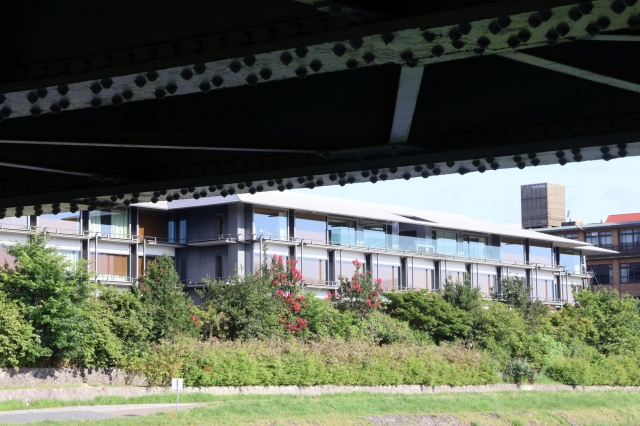Boutique hotels have always had a knack for offering something different. They provide spaces that feel personal, curated, and deeply connected to their surroundings. In 2025, this difference has become even more pronounced as travelers seek stays that are memorable not just for comfort and convenience.
Many independent properties are finding creative ways to stand out, often rethinking every detail from room layouts to community spaces. They are even collaborating with service providers to craft a carefully tailored property improvement plan for hotel.
According to Amerail Systems, this approach can not only enhance customer experience but also help increase revenue. Rather than making changes in a piecemeal fashion, owners are approaching improvements holistically. They are blending design, technology, and service enhancements in a way that supports a stronger guest experience.
Besides the renovations, there are many other ways boutique hotels are redefining guest experiences in 2025. Let's have a look at five such ways in this article.
Design That Feels Like Home, But Better
In many boutique hotels, design is no longer about flashy statements or trend-chasing. Instead, it's about creating spaces that feel instantly welcoming yet undeniably refined, with subtle touches that make guests feel both comfortable and inspired.
Designers are turning to locally sourced materials, region-specific color palettes, and handmade décor elements. They are doing this in an attempt to tell a story and reflect the essence of the destination.
A room in a coastal property might feature driftwood accents, while a city-center boutique could highlight industrial textures softened with lush fabrics. These choices aren't just aesthetic; they help create an atmosphere where guests feel connected to their surroundings in a way that's hard to replicate.
The idea here is to create a home-away-from-home-like experience. As an NCBI study states, guests can experience this while staying at a hotel through the functions, emotions, and imagination of home. If boutique hotel management is able to provide this, it can even have a positive impact on their pro-environmental behavior.
Technology That Disappears into the Background
The use of technology in the hospitality industry is nothing new. According to Hotel Technology News, many luxury hotels have already been using technology to redefine their brand strategy.
These hotels are leveraging in-room technology for personalized experiences powered by data. They are creating digital touchpoints that reflect their brand and blending in-room technology with timeless hospitality.
The same can be said for boutique hotels, too. In 2025, boutique hotels are weaving it in so subtly that it enhances the stay without feeling intrusive. This could mean intuitive lighting systems that adjust to the time of day, climate control that learns a guest's preferences, or discreet air-quality monitors.
As Future Market Insights states, technology integration has already been a growing trend for boutique hotels from 2020 to 2024. However, it is estimated to continue at an even faster pace from 2025 to 2035. The use of AI-powered guest services and virtual reality is particularly expected to be adopted much quickly.
Local Partnerships That Enrich the Stay
One of the standout moves boutique hotels are making is building partnerships with local artisans, chefs, and event organizers. This gives guests authentic experiences; think in-room coffee roasted by a nearby café, or weekend pop-up dinners featuring a celebrated neighborhood chef.
Some properties even collaborate with local artists to rotate seasonal exhibits in their public areas, turning hallways and lounges into living galleries.
Consider the example of The Westman, a boutique hotel recently restored in Bend, Oregon. The CEO of the company that operates the hotel states that they are closely working with local partners. According to Hotel Management, it is these partnerships that let them offer immersive, experience-rich stays. The deeply personal level of service helps reflect the vibrancy of Bend and the nearby region.
Wellness as a Core Offering
Wellness isn't just about the gym anymore. Hotels are integrating well-being into almost every aspect of the guest journey, ensuring that guests leave feeling better than when they arrived.
Rooftop yoga at sunrise, menus designed around local, organic produce, and rooms with air-purifying plants are just a few examples. These touches go beyond physical health, creating an environment where mental clarity and relaxation are just as important as amenities and comfort.
A PubMed Central study shows that boutique hotels are increasingly recognized as event hubs and flexible destinations, not just places to stay. This “bleisure” travel trend blends leisure and wellness, and is reflected in design choices.
Many boutique and lifestyle hotels are incorporating wellness amenities as a standard part of their rooms. They offer access to well-equipped fitness centers, yoga kits, healthy breakfast menus, and green atmospheres contributing to higher guest satisfaction.
Storytelling Through Service
Perhaps the most subtle yet powerful shift in boutique hospitality is the emphasis on storytelling. Staff are trained not only in service but in sharing the history, culture, and quirks of the property and surrounding area.
A conversation about the local wine list might lead to an anecdote about the vineyard's founder. Or, a welcome tour could include stories about the building's past life.
These moments help guests form emotional connections, making the stay feel more like an exchange between friends than a transaction. In 2025, that level of personal connection is often what travelers remember most.
A study from the AJPO Journal shows that boutique hotel guests show higher satisfaction when they are made a part of the journey. The personalized attention, unique environments, and memorable storytelling woven into the service experience elevate it to a new level.
Frequently Asked Questions
How do boutique hotels differ from large chain hotels in terms of guest experience?
Boutique hotels often prioritize individuality, personal service, and unique design elements. On the contrary, large chain hotels tend to follow standardized layouts and amenities. Guests at boutique hotels typically enjoy a more intimate atmosphere and stronger ties to the local community.
Are boutique hotels generally more expensive than traditional hotels?
Prices vary widely, but boutique hotels can sometimes cost more due to their focus on quality design, personalized service, and limited room numbers. However, many travelers who stay at a boutique hotel find the added comfort, uniqueness, and attention to detail worth the investment.
Do boutique hotels cater to business travelers?
Yes. Many boutique hotels now offer business-friendly amenities like high-speed internet, meeting spaces, and flexible work areas. They do all of these while still maintaining their signature charm and style. This combination appeals to travelers who want both functionality and a memorable stay.
Boutique hotels in 2025 are proving that memorable stays come from more than just a comfortable bed. Through thoughtful design, subtle technology, local connections, and personalized service, they're creating experiences that feel both distinctive and deeply personal.
These properties offer a refreshing reminder that hospitality can be as much about connection and storytelling as it is about amenities.






